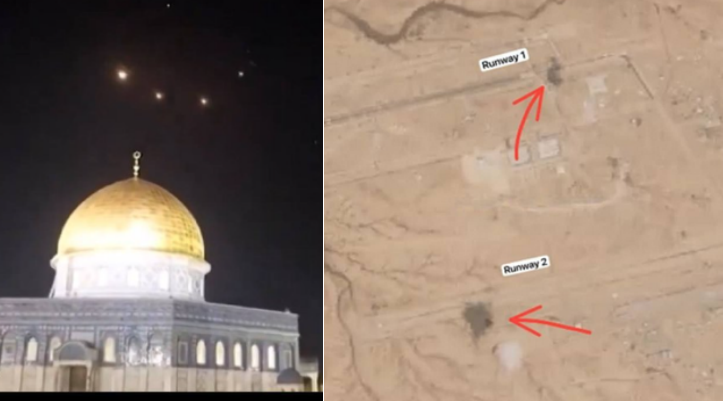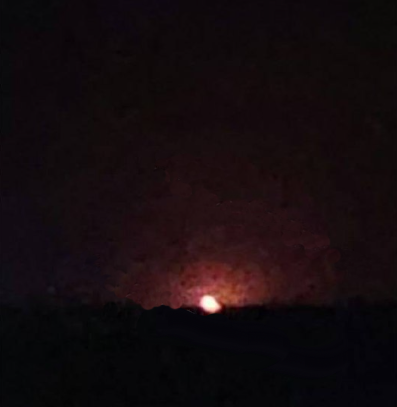

by John Helmer, Moscow
@bears_with
Triumphalism and self-promotion by US alt-media generals (er, colonels, majors, lieutenants) and Donald Trump contribute nothing of value to the Russian analysis of the Iran’s operation against Israel on Saturday night, April 13. That’s to say, analysis, not of who has gained, who has lost, but of what there is to be learned for fighting the next round.
Not much, a Russian military source intimates. “A lot of fireworks but no real damage. The Iranians let it be known they wouldn’t go beyond fireworks . The panic and stampede like the situation in Jerusalem once again shows how jittery Israel is. But the Iranians have no fight left against this enemy – the last six months have shown it.”
Not much — a North American military source agrees. “I think it was a lot of noise-making all round. The Iranians telegraphed, then pulled, their punch. They did the same thing in January 2020 with Operation Martyr Soleimani. A lot of noise was made about ‘punishment’, ‘revenge’, etc., while, at the same time, signals were sent to the enemy stating that an attack is imminent, is retaliatory in nature and not to be seen as escalatory. This is how the Iranian Government saves face while, in their mind, avoiding a direct major conflict which would certainly threaten their continued rule.”
In public at least, and for the time being, this is not the assessment of the leading Russian military blogger, Boris Rozhin, author of the Colonel Cassad short-read Telegram and longer-read Live Journal. His isn’t the place — nor is this — to anticipate the assessments under way at the General Staff and Kremlin, or to report how they are gauging the impact of what has just happened on Russian operations in the Ukraine war, if any.
A small exception can be made for the Kremlin’s “I told you so” following Trump’s Schnecksville declaration on Saturday. “God bless the people of Israel,” Trump said. “The weakness we have shown is unbelievable and would not have happened if we were in office… America prays for Israel. We send our absolute support to everyone who is in harm’s way…We will restore America’s strength at home.”
Schnecksville, Pennsylvania, is where Trump said this at a voter rally. He’s unlikely to know that the meaning of the Yiddish word, schneck, is a sluggard, an idler: Schnecksille is Bum’s Town. Trump’s statement there confirms part of the reason for President Vladimir Putin’s February 14 declaration of preference for Trump to be defeated in the US president election in seven months’ time.
For public discussion in Moscow, there remains to be clarified why the Iranian drone wave, missile wave combination failed so much more comprehensively than the Russian operational method in the Ukraine. “The IDF [Israel Defence Forces] claims 99% of downed targets, the IRGC [Islamic Revolutionary Guard Corps] claims 50% of successful hits (meaning ballistics),” Rozhin sums up. “It is obvious that Israel will in every possible way downplay the consequences of the strike and hide the victims and destruction, as this is a matter of military prestige. It is obvious that Iran will exaggerate the consequences of the strike as much as possible and carry out active information activities aimed at increasing the military prestige of the IRGC and the Iranian Armed Forces.”
“Israel is now at a fork in the road. To strike directly at Iran means to receive a retaliatory missile strike, an even more powerful one, which is guaranteed to penetrate the Israeli air defence system. At the same time, the United States has already stated that it will not take part in attacks on Iran, hinting that Israel should limit itself to something like the usual strikes against Hezbollah and Iranian proxies in Syria. Similarly, the European satellites of the United States actually warn Israel against attacks on Iran. But this, of course, will be perceived in Israel itself as a sign of weakness, because Iran has shown that it can directly strike directly at Israel, which is the intersection of all Israel’s red lines.”
(more…)




















